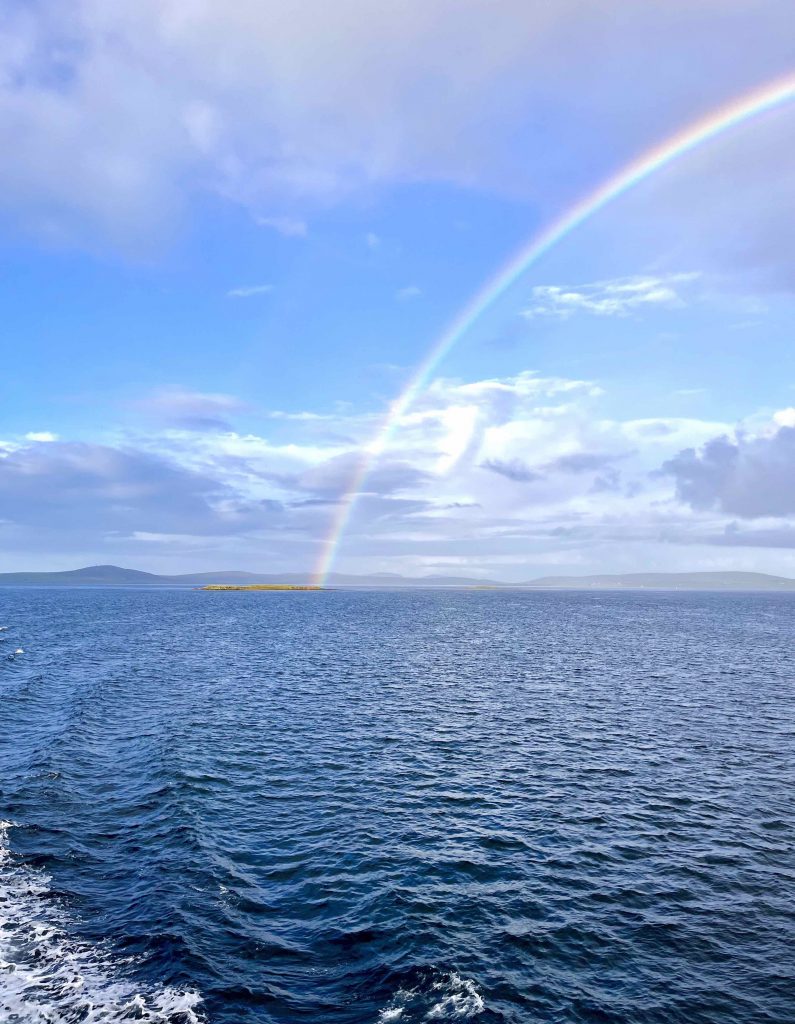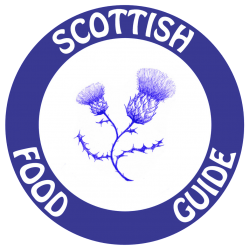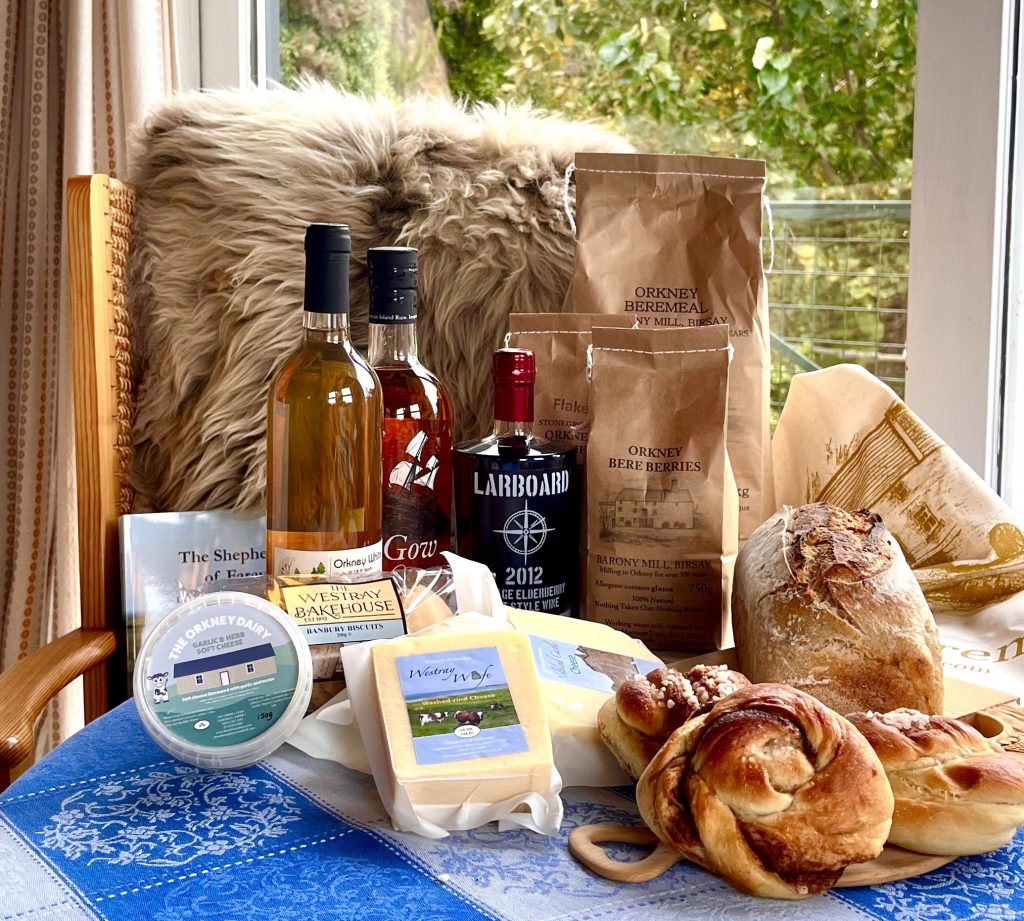Written in 1955 by Pete Seager with a little help from a traditional Cossack folk song and an Irish melody, this famous song was listed in the 2010 Top 20 Political Songs and bears as much relevance today. Polarised social media, where a little knowledge is a dangerous thing, takes a lot of weeding these days to sort the wheat from the chaff. I could let off steam on the over-use of plastics, building on flood plains, concreting landscapes and clothing industry pollutants but I shall endeavour to stick to food related issues. When will they ever learn? Much of my daily life is committed to supporting nature-friendly food production: those who follow it and chefs who cook imaginative dishes with it, yet we are often demonised in the name of climate change. Indeed if you would like to understand more about the methane cycle for example I would recommend this link.
Readers of my newsletter – fishers, gatherers, farmers, chefs and foodies – are probably signed up to supporting a healthy food landscape however follow the money and it leads to muddier waters…
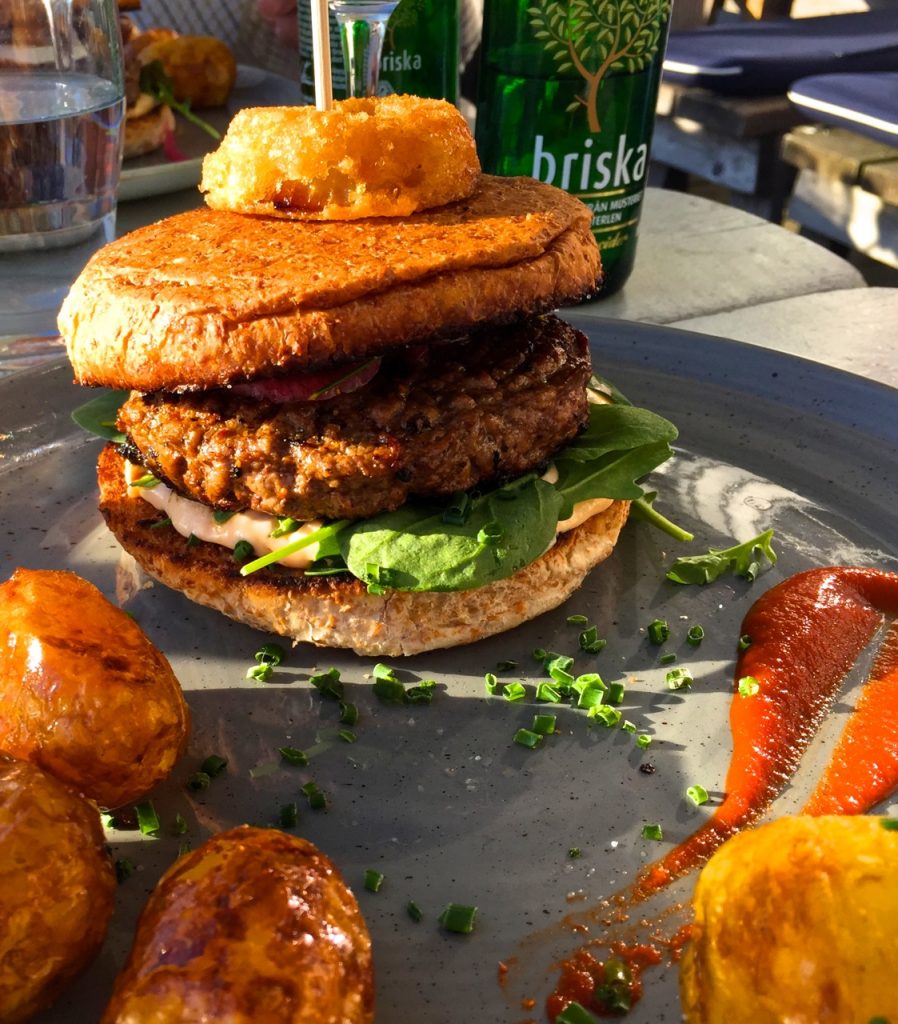
In Japan, their Prime Minister was photographed enjoying safe fish after the authorities sanctioned the pouring of treated radioactive water from the damaged Fukushima nuclear plant into the Pacific Ocean. No surprise the fishermen aren’t happy – neither are we. We are but one planet, all inter-connected.
It reminded me of the infamous John Selwyn Gummer moment in 1990 when, as Agriculture Minister, again for press, he offered his young daughter a beef burger to demonstrate the safety of British beef after Bovine Spongiform Encephalopathy was found in cattle that had been fed a contaminated meat and bone mix. This highly distasteful press gaffe was prior to the first registered cases of CJD, the fearful degenerative brain disease in humans who had eaten infected beef – but there were already rumours. The UK Government at that time didn’t officially confirm the danger for another six years by which time the EU had already banned our beef. When will they ever learn, ruminants should eat grass and its derivatives, not grain nor heaven forbid processed body parts.
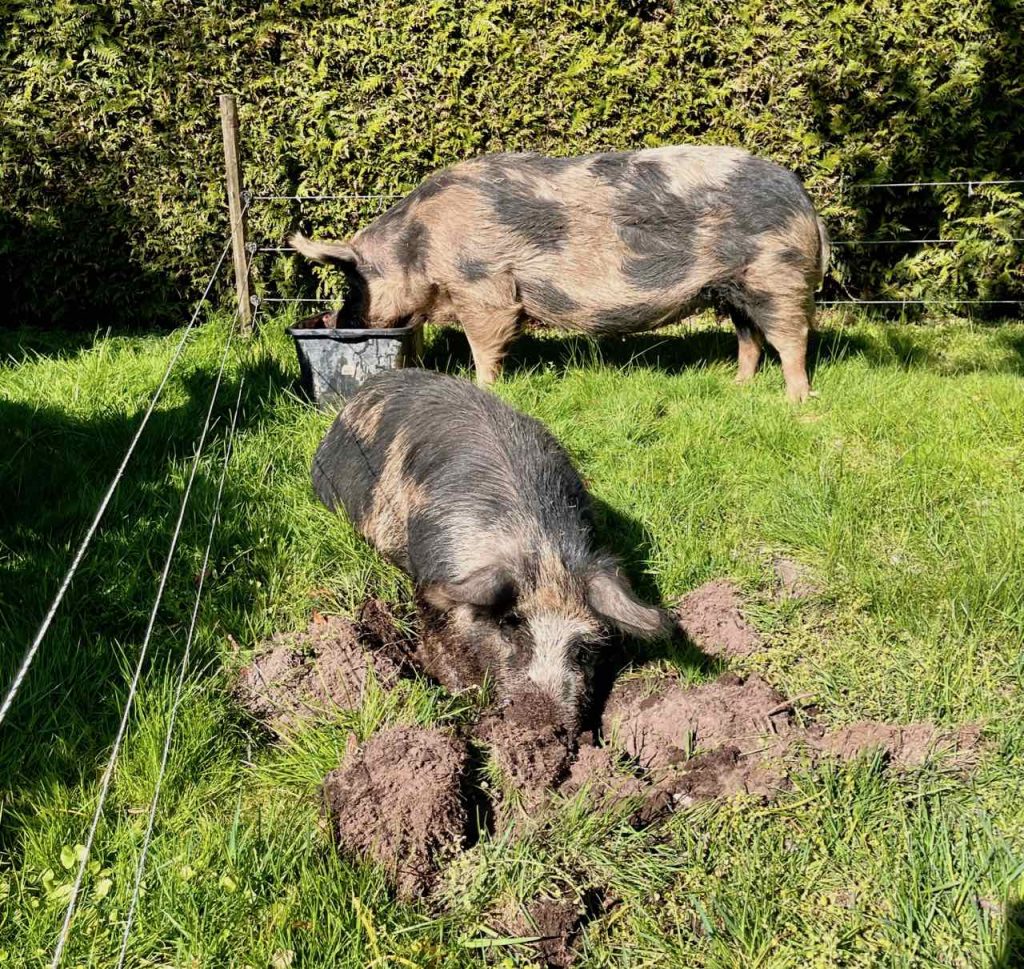
Today in Sweden, African Swine Fever has tragically shown itself, believed to have started with imported ham, left to rot in an unfenced council landfill where wild boar could tuck in. Many regions are densely populated with these feral pigs and the danger of them spreading the disease to domestic pigs is real. So what do the authorities do? Take heed of local knowledge and specialist guidance and advise the recommended double fencing and careful stock management? No, they start culling healthy rare breed outdoor pigs, potentially distorting priceless genebanks for no reason. Do large industrial pig units suffer? Of course not. Big business remains untouched whilst smallholders are heartbroken and suffering financially. Bosse, who is currently Chair of the Linderödsvin Genebank, along with his knowledgeable friends, board members and pig owners, are fighting the cause and I for one passionately wish them every success. They have to make sure the government see sense before it is too late.
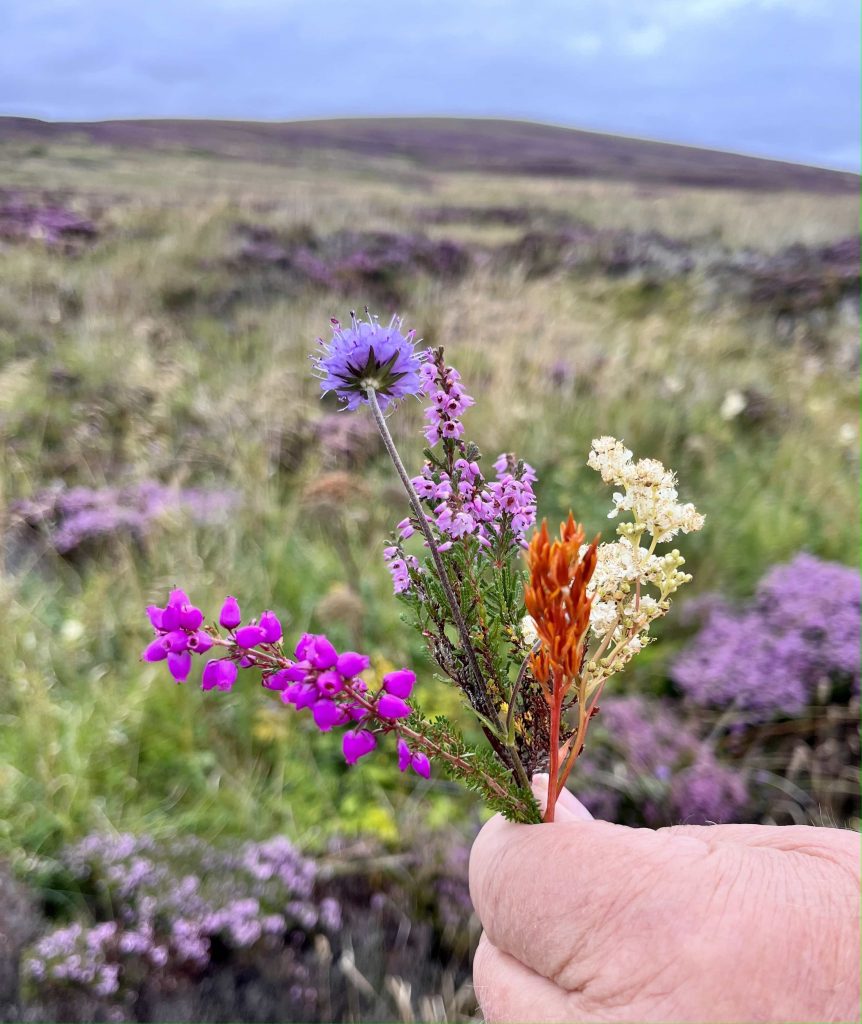
Is there no end to this? We see photographs of farmed salmon being eaten alive by sea lice and heavily polluted rivers. Big business is playing roulette with our lives and Mother Earth. In the light of the bureaucracy and politics that can blight the lives of smallholders and regenerative agronomists, Joni Mitchell’s “Big Yellow Taxi” comes to mind, paving paradise to put up a parking lot, or another ultra-processed food (UPF) unit! There are ways to provide healthy food for the planet whilst working with nature, if only there could be less polarisation and more open minds.
***
And if that was all too depressing, what better way to lighten my newsletter than with a trip to Orkney? A magical archipelago where the temperate – if windy – maritime climate offers fine fertile land and food production opportunities, beautiful light for artists and a happy safe environment for families. What’s not to love? They say Orcadians are farmers who fish whilst Shetlanders are fisherfolk who farm. There is an element of truth in this due to the differing landscape and coastal features however we are looking forward to Taste of Shetland next month where farmers play a key role in biodiversity.
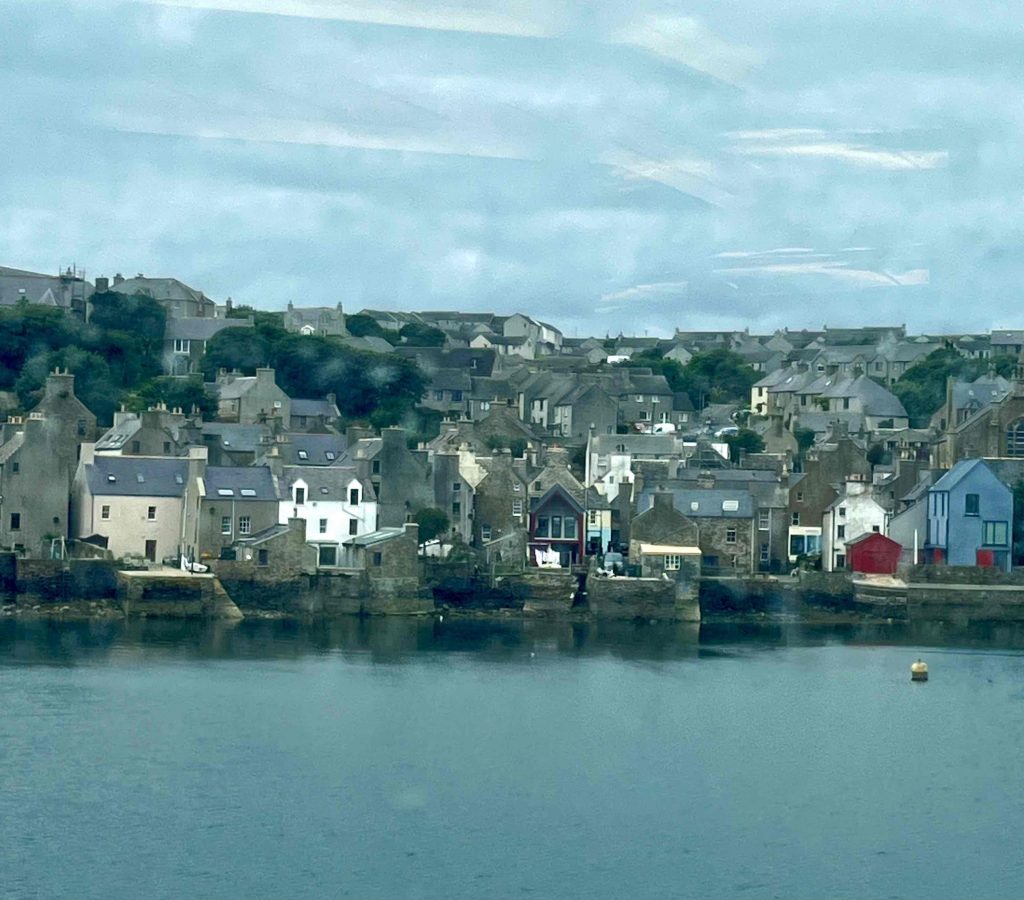
We take the scenic North Coast 500 where our latest Scottish Food Guide Member, Donna, has the lovely Othin House: Bakery, Deli, Coffee House & Kitchen in Helmsdale. Newly opened, this colourful emporium and epicurean haunt has much to offer. From Scrabster, we land at Stromness and criss-cross the farmland on country lanes, passing standing stones and pottery studios, exploring Orkney mainland and capturing the joys of these bonnie isles. The Neolithic sites are breath-taking and the natural beauty therapeutic. Although we were there primarily to catch up with friends, Members, producers, farmers and chefs, it is worth reflecting that Orkney’s history is the reason they are all here today. Early settlers recognised its potential, appreciated its natural resources and led long healthy lives there.
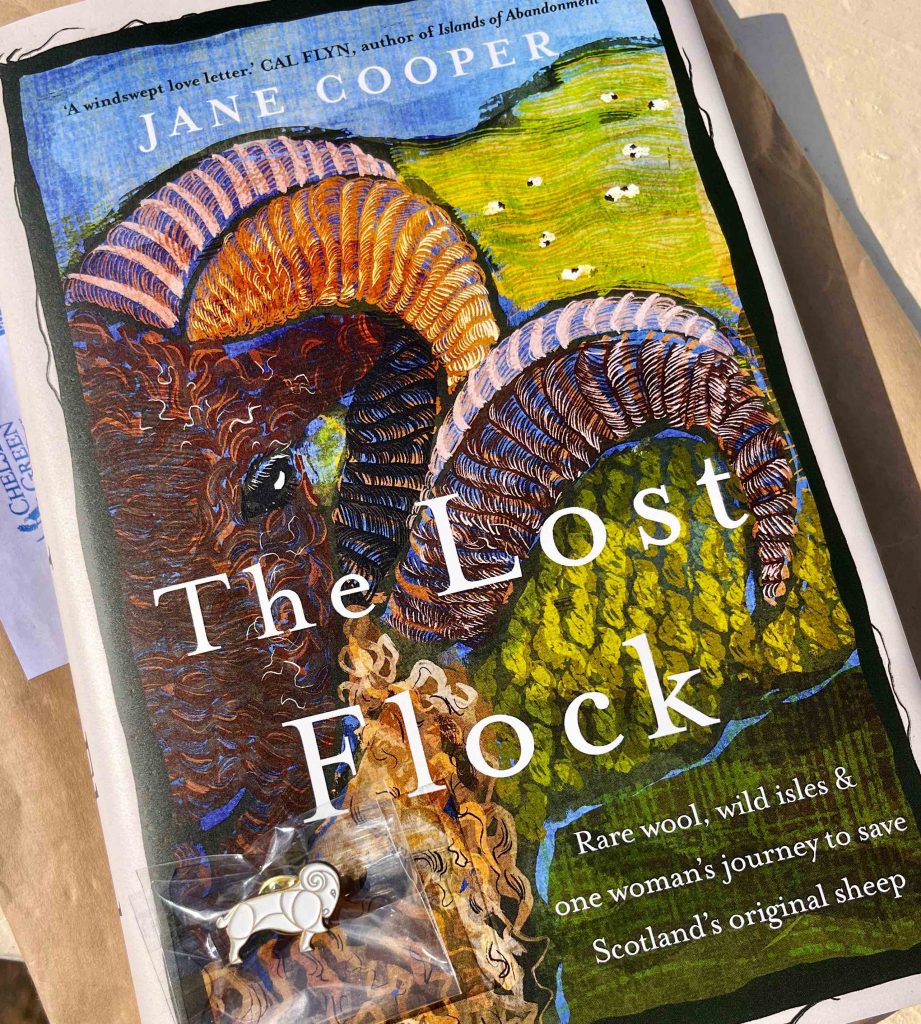
Our first stop was delicious home-baked cake at Jane & Paul Cooper’s home where Jane founded The Orkney Boreray Community, saving a species and creating a network of smallholders, farmers, butchers, craftsfolk, weavers, knitters and cooks. This unique story is the subject of her book, “The Lost Flock” newly published by Chelsea Green and available in local bookshops. Here’s a recording of Jane at the Orkney Science Festival and look out for chefs offering Orkney Boreray on their menus including members Neil at Café St Honore and Chris at Ballintaggart.
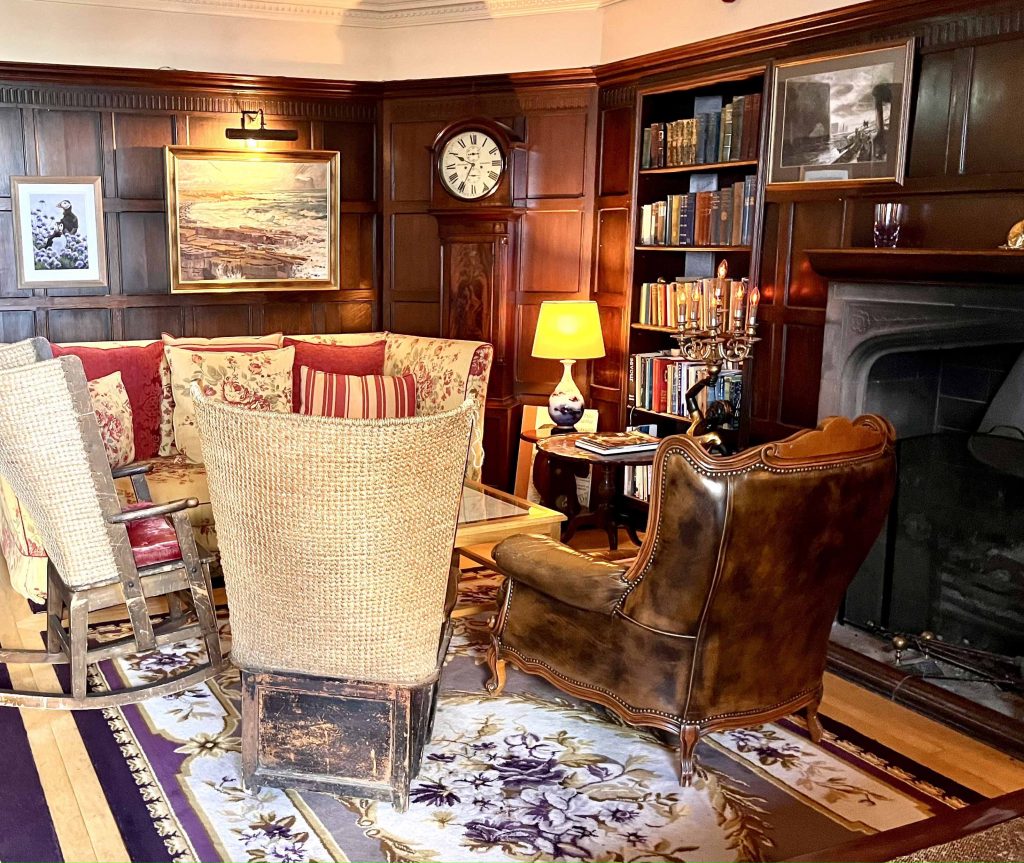
We settled in at our abode for the next few nights, the fabulous Lynnfield Hotel, where Malcolm is a staunch supporter of all things Orcadian with a mouth-watering menu to prove it. We brought a bunch of Swedes from Slow Food Scania here pre-covid and they still talk about the brilliant accommodation, fantastic meals and warm hospitality.
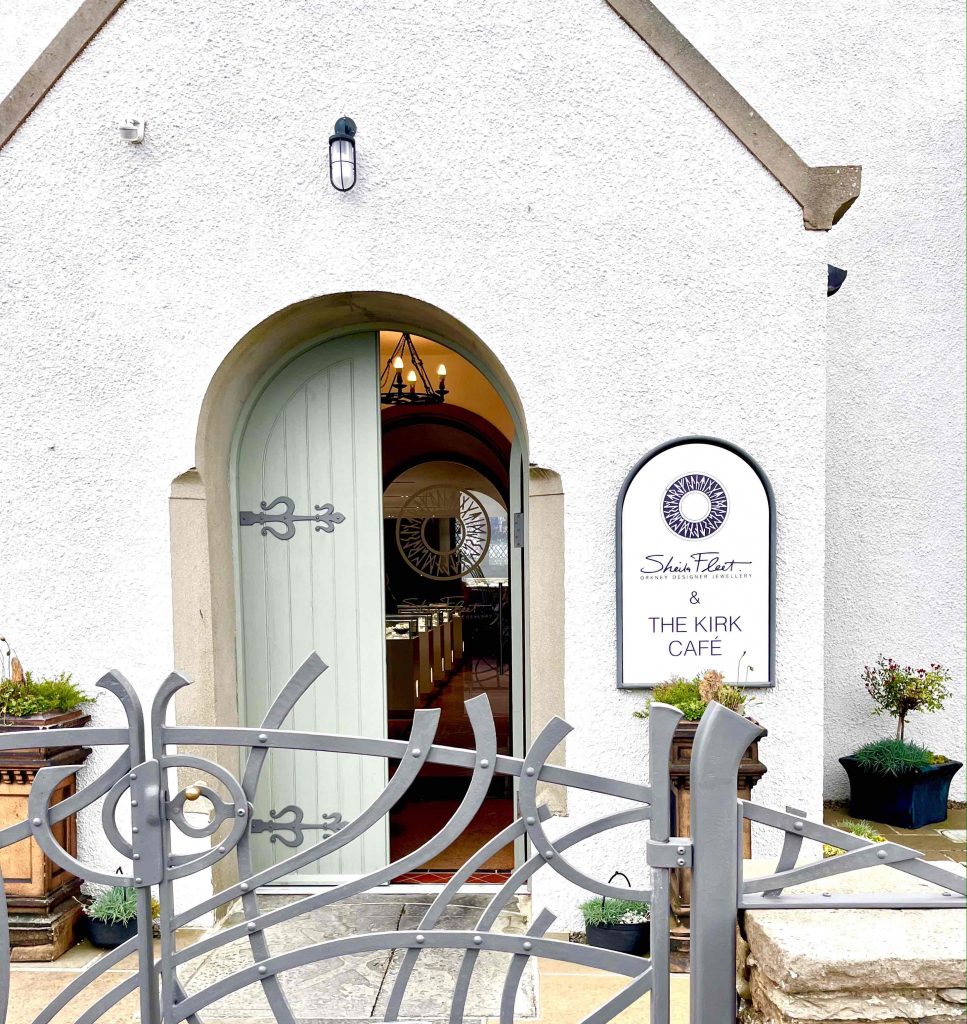
After a cracking Scottish breakfast and a pit stop at The Orcadian to top up our book stock at their request, we headed south east to Sheila Fleet Kirk Gallery & Café, home to the most exquisite jewellery ever and their charming café, all in a renovated church by Tankerness with local crafts, gifts and Sheila’s printed scarves on the upper floor. It was good to see everyone again and I savoured every mouthful of the Orkney crab on the menu.
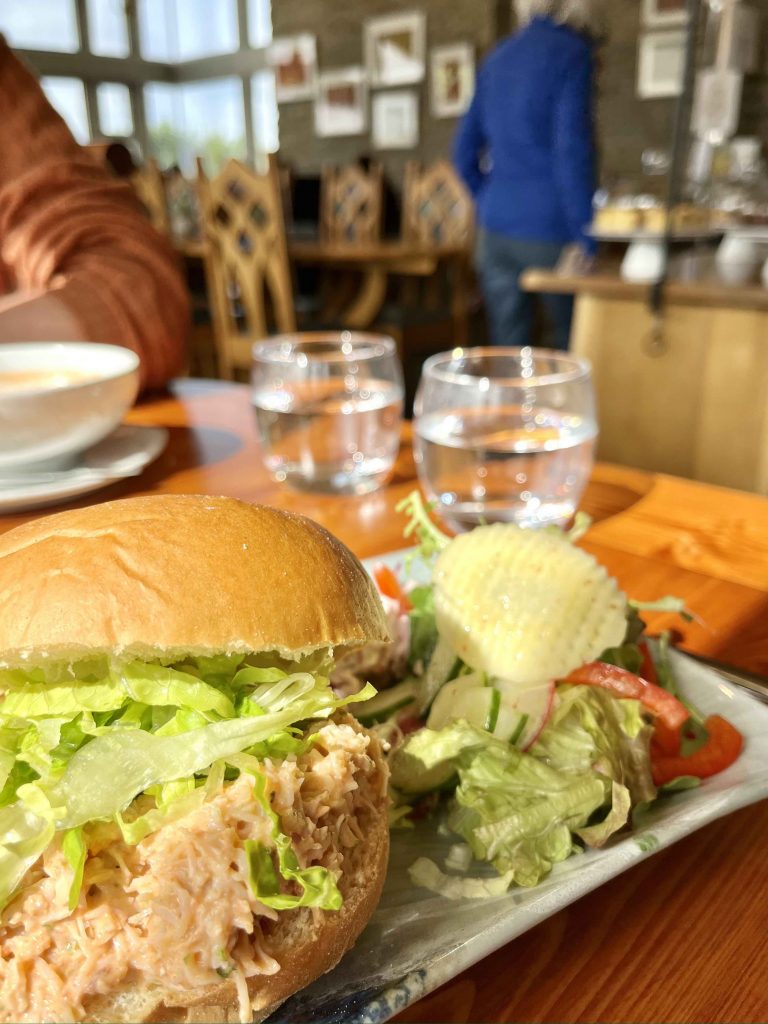
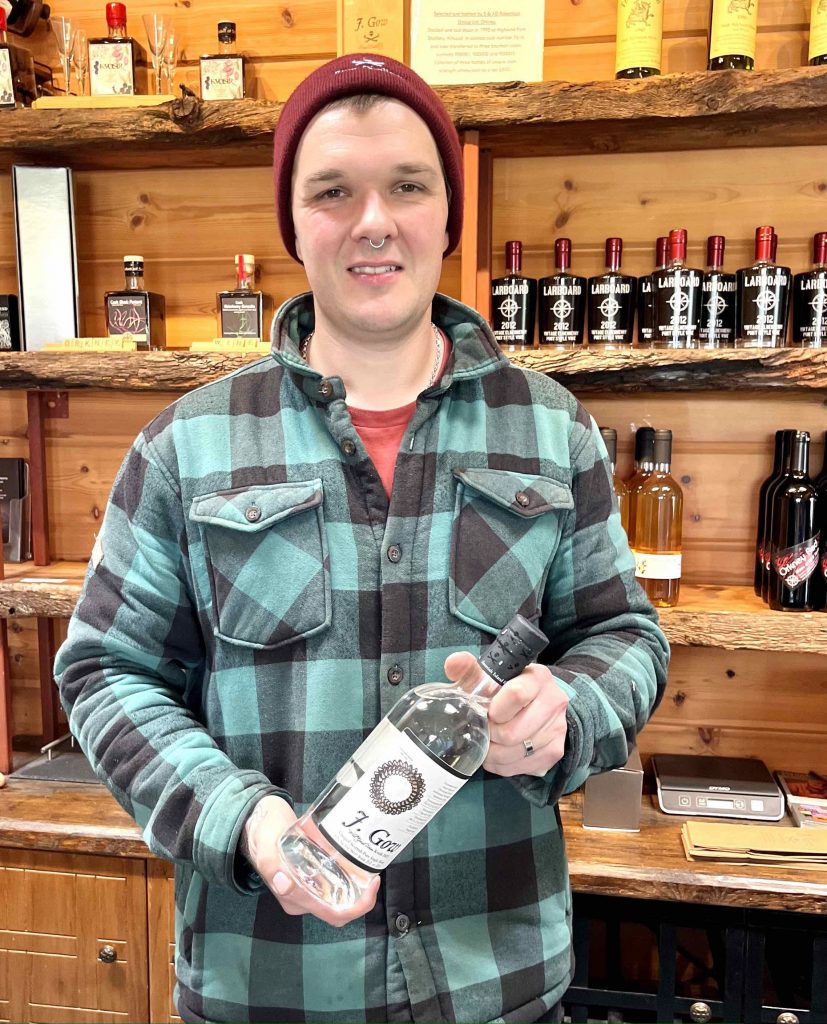
Taking the back roads, we drove down to the Churchill Barriers – always fun to do – then paused to pop in on Collin, founder of J. Gow Rum and also home to the Orkney Wine Company. With the Christmas wine list sorted we returned to our roost at Malcolm’s for another marvellous dinner.
Work days don’t get much better than that… or do they…as the following day was a sunshine-and-rainbows ferry trip to Wilsons of Westray with their very special range of cheeses.

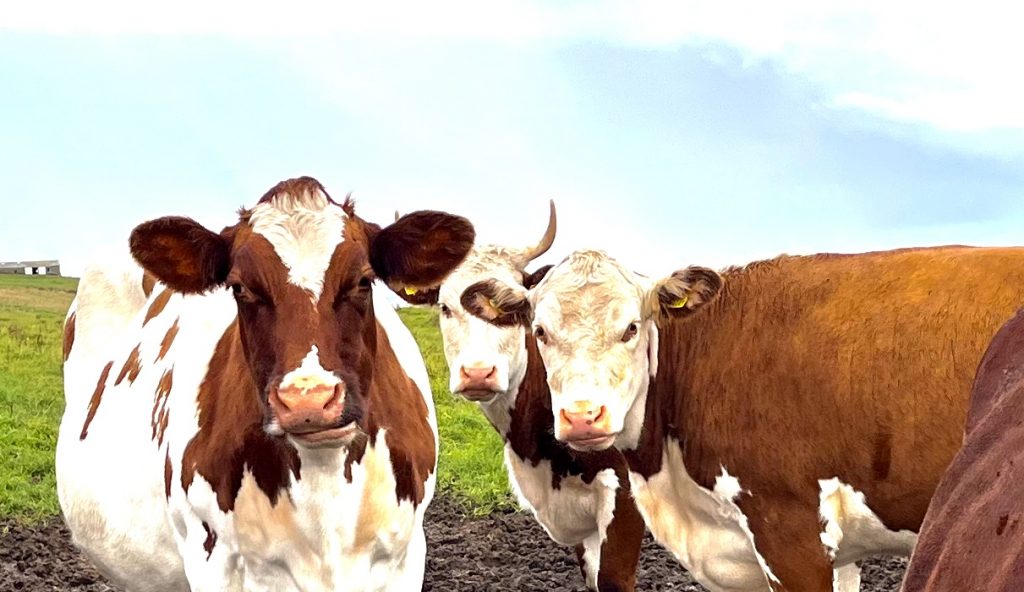
Precious moments with skilled cheesemakers are a privilege and we love our visits, seeing their Ayrshire herd, famous for its milk quality, and sitting round the table with a cuppa, savouring cheese. Although we didn’t catch Louise at Westray Bakehouse this time, we did buy her biscuits in the local shop, along with fattie cutties, a recommendation from Malcolm and very tasty.
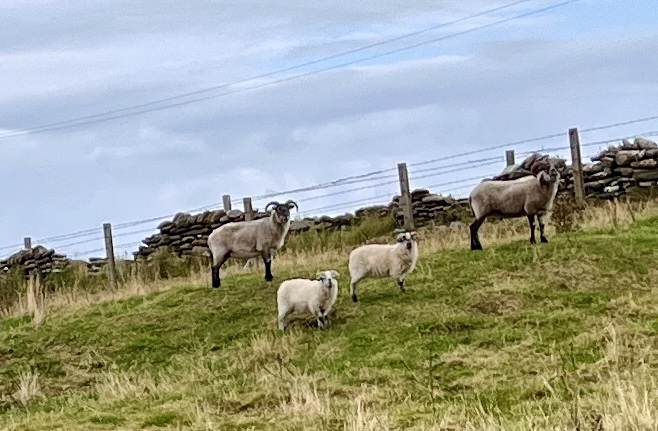
Before hopping on our ferry, we met Kim, another member of the Orkney Boreray Community, who kindly took us around and about to see her flocks out as nature intended.
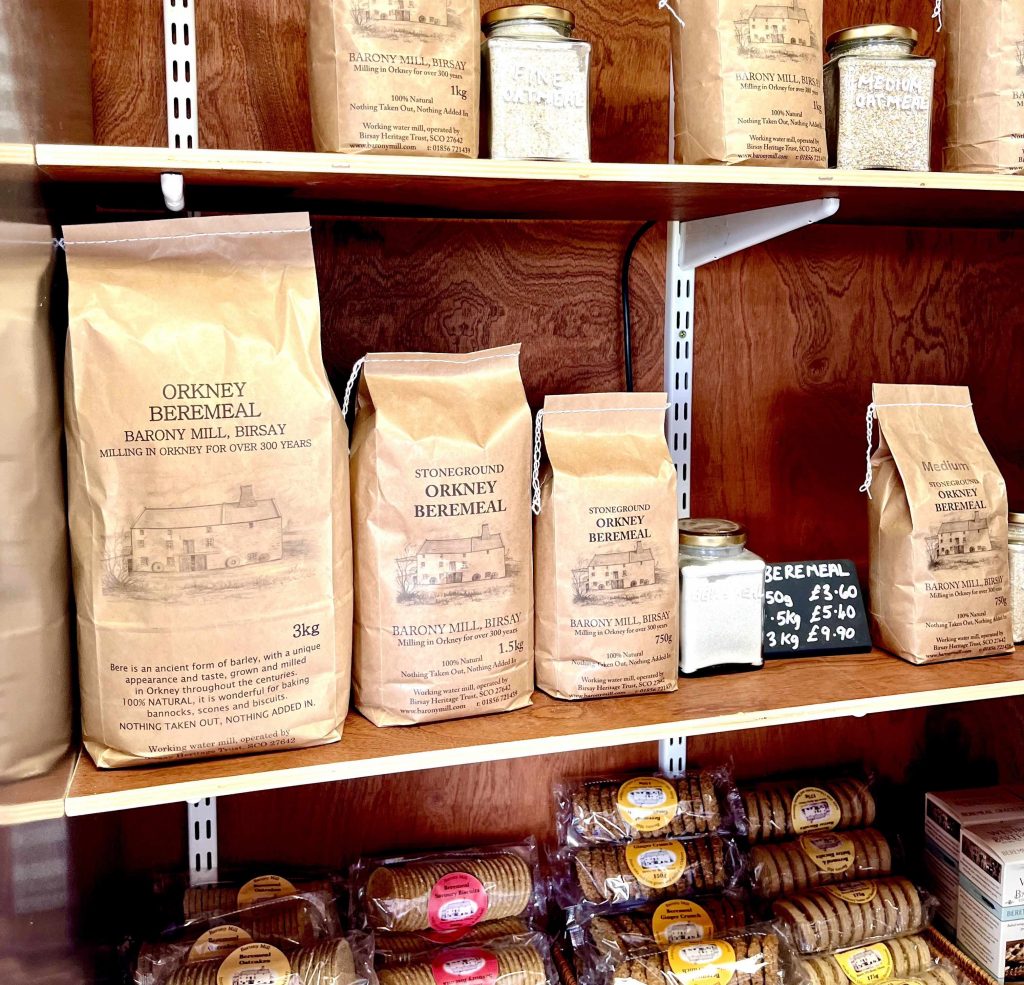
stockists & mail order
At Barony Mill we chatted to Alister and Tony, topped up our supplies and welcomed them as Scottish Food Guide Members. What they achieve at Barony is fantastic and Orkney Bere in its various forms (flour, flakes and berries) is an ingredient I would highly recommend. The watermill itself is well worth a visit and will re-open in May.
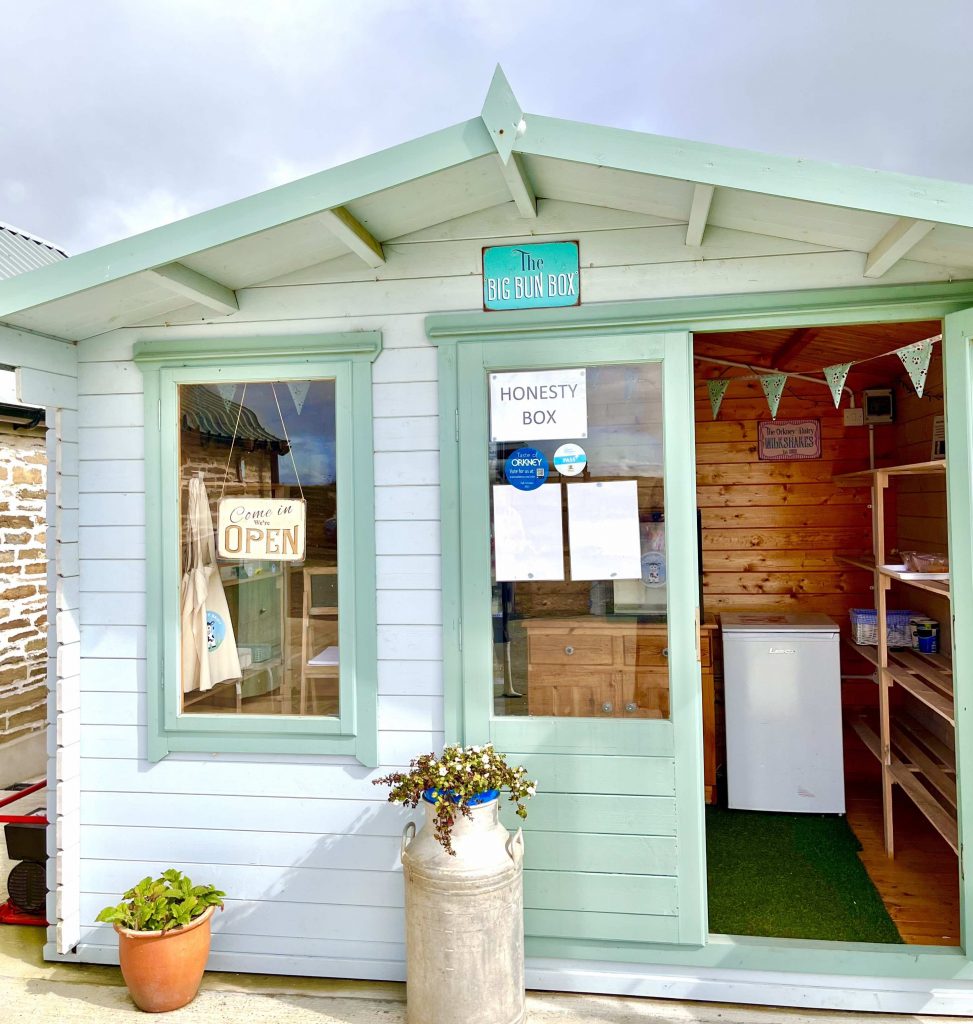
Another new Member is The Orkney Dairy with their Fleckvieh cattle, carefully chosen for their hardiness and milk quality. Lara sells milk and milk shakes, makes yoghurts and, most recently, a delicious fresh cream cheese with garlic and herbs – all from her bonnie chalet shop called The Big Bun Box.
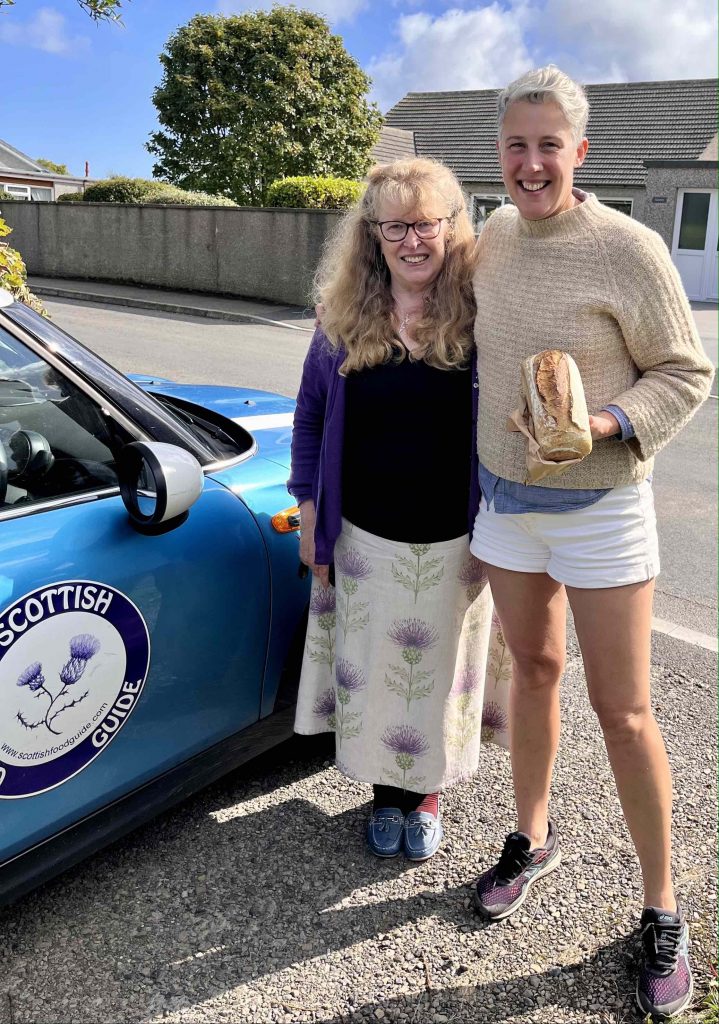
Last but by no means least, our final fika stop – with her exceptional cinnamon buns – was at Karin’s, The Orkney Sourdough Company. Fika not just a coffee and cake break but a cherished Swedish custom. A professional chef, Karin honed her specialist craft with artisan bakers and pastry experts back in Sweden before launching her business in Kirkwall.
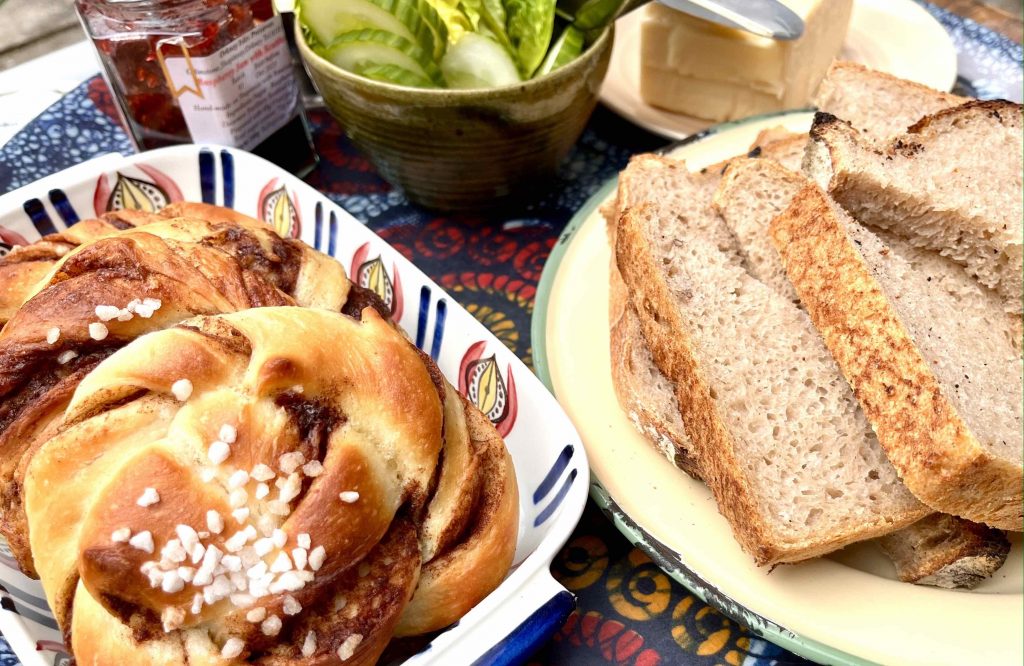
It was wonderful to catch up with the producers and chefs who work so hard and together create a world-class food destination – a phrase that is over-used by many for an average offering but in this case it couldn’t be more accurate. Several Orkney producers are even recognised on Slow Food International’s Ark of Taste for their rarity and provenance, and Scotland’s only two Presidia are both on Orkney: The Orkney Boreray & The North Ronaldsay Sheep.
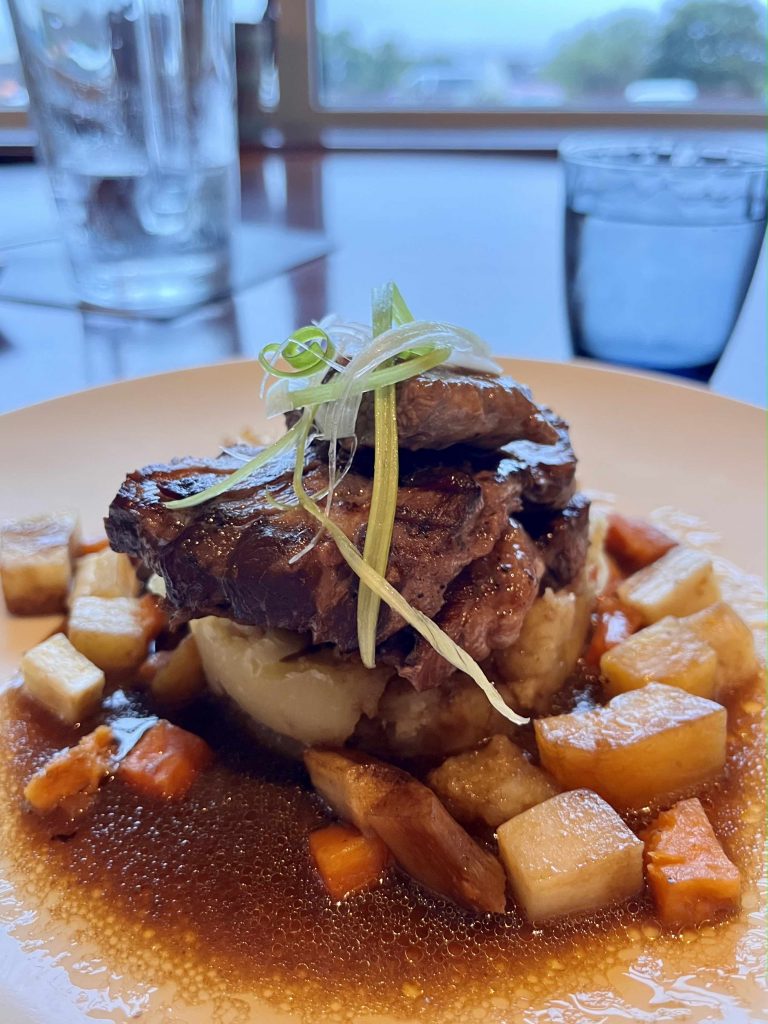
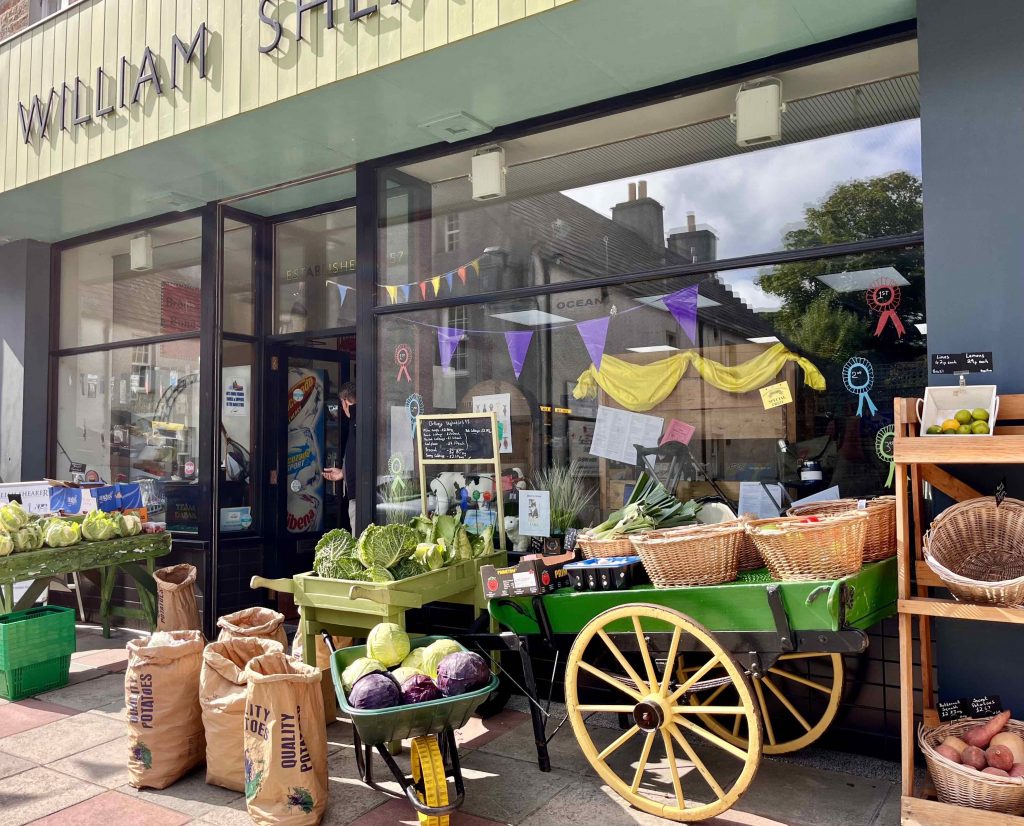
A trip to Orkney really ought to mention Shearers (pictured) – an Aladdin’s cave of comestibles, with essentials for gardeners, farmers, birders, bakers, fishers, hunters & more besides. Not SFG members however they stock almost every producer I’ve mentioned so are a true supporter in other ways.
Wherever you explore in Scotland, you can be safe in the knowledge that Scottish Food Guide has personally endorsed every entry and is a guide you can trust every step of the way. That’s not to say there aren’t a few more real gems out there I’ve yet to find, so if you know of one do send me details and I can take it from there.
